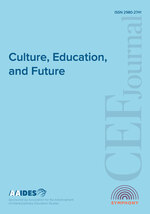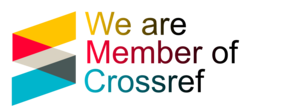Navigating the complexities of academic pathways in Turkey: A currere-based exploration
DOI:
https://doi.org/10.70116/3065457246Keywords:
Reflection, academic pathways, currereAbstract
This autobiographical study explores the author’s academic journey in Turkey, highlighting the dynamic and complex nature of this path within a challenging socio-economic context. Using Pinar’s concept of currere, the study employs a multidimensional autobiographical approach—encompassing regressive, progressive, analytical, and synthetical moments—to explore the author’s academic journey and preparation for a career in academia within Turkey’s unique educational landscape. By analyzing the author’s experiences through these phases, the study uncovers key factors influencing his academic development in Turkey, including the challenges of navigating the academic system and the strategies I used to overcome them. The research highlights the critical role of self-reflection and personal narratives in understanding and navigating the complexities of academic life in Turkey, particularly for graduate students and emerging researchers. From employing the method of currere, I learned much about my journey through Turkey’s academic career processes, emphasizing the interaction between personal experiences and systemic factors in shaping academic success and career progression. This study contributes to the broader currere literature by offering a detailed personal examination of academic career preparation and development in Turkey, providing perspectives that may resonate with or inform experiences in very different settings.
Downloads
References
Altbach, P. G. (2004). Globalisation and the university: Myths and realities in an unequal world. Tertiary Education & Management, 10(1), 3-25. DOI: https://doi.org/10.1023/B:TEAM.0000012239.55136.4b
Altbach, P. G. (2015). What counts for academic productivity in research universities?. International Higher Education, (79), 6-7. DOI: https://doi.org/10.6017/ihe.2015.79.5837
Altbach, P. G., Reisberg, L., & Rumbley, L. E. (2010). Trends in global higher education: Tracking an academic revolution. Brill. DOI: https://doi.org/10.1163/9789004406155
Deniz, Ü. (2020). Views of education faculty members on student plagiarism. Journal of Higher Education, 10(2), 193-204. DOI: https://doi.org/10.2399/yod.19.513584
Deniz, Ü. (2022). Main problems of higher education and quests for reform in Turkey. Anatolian Journal of Education, 7(2), 173-192 DOI: https://doi.org/10.29333/aje.2022.7214a
Aydın, O. T. (2017). Research performance of higher education institutions: A review on the measurements and affecting factors of research performance. Journal of Higher Education and Science, 7(2), 312-320. DOI: https://doi.org/10.5961/jhes.2017.210
Bourdieu, P. (1988). Homo academicus. Stanford University Press.
Bozeman, B., & Feeney, M. K. (2007). Toward a useful theory of mentoring: A conceptual analysis and critique. Administration & Society, 39(6), 719-739. DOI: https://doi.org/10.1177/0095399707304119
Brockmeier, J., & Carbaugh, D. (Eds.). (2001). Narrative and identity: Studies in autobiography, self and culture. John Benjamins Publishing. DOI: https://doi.org/10.1075/sin.1
Brookfield, S. D. (2017). Becoming a critically reflective teacher. John Wiley & Sons.
Bruner, J. (1991). The narrative construction of reality. Critical Inquiry, 18(1), 1-21. DOI: https://doi.org/10.1086/448619
Çelik, Z., & Gür, B. S. (2013). Turkey’s education policy during the AK party era (2002-2013). Insight Turkey, 15(4), 151.
Creswell, J. W., & Poth, C. N. (2018). Qualitative inquiry and research design: Choosing among five approaches. Sage.
Demir, S. B. (2018). Pros and cons of the new financial support policy for Turkish researchers. Scientometrics, 116(3), 2053-2068. DOI: https://doi.org/10.1007/s11192-018-2833-4
Dewey, J. (1938). Experience and education. MacMillan.
Doll, W. E. (1993). A post-modern perspective on curriculum. Teachers College Press.
Downey, A. (2020). A reflection on white-seeming privilege through the process of currere. The Currere Exchange Journal, 3(2), 1-10.
Downey, A. M. (2023). Ficto-currere, post-truth, and subversive uncertainty. The Currere Exchange Journal, 7(1), 6-14.
Ferguson, N. (2018). The square and the tower. Penguin Press.
Freire, P. (2000). Pedagogy of the oppressed (M. B. Ramos, Trans.). Continuum.
Gardner, S. K. (2009a). The development of doctoral students: Phases of challenge and support. ASHE Higher Education Report, 34(6). Jossey-Bass.
Gardner, H. (2009b). Five minds for the future. Harvard Business Review Press.
Giroux, H. A. (1988). Teachers as Intellectuals: Toward a critical pedagogy of learning. Praeger.
Goodson, I., & Gill, S. (2011). Narrative pedagogy: Life history and learning. Peter Lang.
Grumet, M. R. (1988). Bitter milk: Women and teaching. University of Massachusetts Press.
Gür, B. S. (2016). Democratization and massification of higher education in Turkey and challenges ahead.Research & Occasional Paper Series: CSHE.3.16. Center for Studies in Higher Education. UCLA Berkeley.
Hofstede, G. (Ed.). (2001). Culture’s consequences: Comparing values, behaviors, institutions, and organizations across nations. Sage.
Johnson, W. B. (2016a). On being a mentor: A guide for higher education faculty. Routledge. DOI: https://doi.org/10.4324/9781315669120
Johnson, L. (2016b). The role of the researcher in qualitative inquiry. In L. Johnson & R. Christensen (Eds.), Educational research: Quantitative, qualitative, and mixed approaches (pp. 265-290). Sage Publications.
Kegan, R. (1982). The evolving self: Problem and process in human. Harvard University Press. DOI: https://doi.org/10.4159/9780674039414
Kolb, D. A. (2014). Experiential learning: Experience as the source of learning and development. Pearson FT Press.
Marginson, S. (2014). Academic freedom: A global comparative approach. Frontiers of Education in China, 9(1), 24-41. DOI: https://doi.org/10.1007/BF03397000
Mezirow, J. (1991). Transformative dimensions of adult learning. Jossey-Bass.
Miller, J. L. (2005). Sounds of silence breaking: Women, autobiography, curriculum. Peter Lang.
Nicholas, D., Herman, E., Jamali, H., Rodríguez‐Bravo, B., Boukacem‐Zeghmouiı, C., Dobrowolski, T., & Pouchot, S. (2015). New ways of building, showcasing, and measuring scholarly reputation. Learned Publishing, 28, 169-183. DOI: https://doi.org/10.1087/20150303
Noddings, N. (2013). Education and democracy in the 21st century. Teachers College Press.
Ota, A. (2013). Factors influencing social, cultural, and academic transitions of Chinese international ESL students in US higher education (Unpublished doctoral dissertation). Portland State University, Portland.
Özoğlu, M., Gür, B. S., & Gümüş, S. (2016). Rapid expansion of higher education in Turkey: The challenges of recently established public universities (2006–2013). Higher Education Policy, 29(1), 21-39. DOI: https://doi.org/10.1057/hep.2015.7
Pascarella, E. T., & Terenzini, P. T. (2005). How college affects students: A third decade of research. Jossey-Bass.
Pinar, W., Reynolds, W., Slattery, P., & Taubman, P. (1995). Understanding curriculum as autobiographical/biographical text. In W. Pinar, W. Reynolds, P. Slattery, & P. Taubman (Eds.), Understanding curriculum: An introduction to the study of historical and contemporary curriculum discourses (pp. 515–566). Peter Lang.
Pinar, W. F. (Ed.). (1974). Heightened consciousness, cultural revolution and curriculum theory: The proceedings of the Rochester Conference. McCutchan.
Pinar, W. F. (1975, April). The method of “currere.” Paper presented at the Annual Meeting of the American Research Association, Washington, D.C.
Pinar, W. F. (1978). The reconceptualisation of curriculum studies. Journal of Curriculum Studies, 10(3), 205-214. DOI: https://doi.org/10.1080/0022027780100303
Pinar, W. F. (1994). Autobiography and an architecture of self (1985). Counterpoints, 2, 201-222.
Pinar, W. F. (1995). Autobiography, politics and sexuality: Essays in curriculum theory 1972-1992. Peter Lang.
Pinar, W. F. (2012). What is curriculum theory?. Routledge. DOI: https://doi.org/10.4324/9780203836033
Pinar, W. F. (2015). Educational experience as lived: Knowledge, history, alterity: The selected works of William F. Pinar. Routledge. DOI: https://doi.org/10.4324/9781315752594
Pinar, W. F. (2020). Currere. In J. Wearing, M. Ingersoll, C. Deluca, B. Bolden, H. Ogden, & T. M. Christou (Eds.), Key concepts in curriculum studies (pp. 50-52). Routledge. DOI: https://doi.org/10.4324/9781351167086-11
Pinar, W. F. (2023). A praxis of presence in curriculum theory. Routledge DOI: https://doi.org/10.4324/9781003212348
Pinar, W. F., & Grumet, M. R. (1976). Toward a poor curriculum. Kendall/Hunt.
Schön, D. A. (2017). The reflective practitioner: How professionals think in action. Routledge. DOI: https://doi.org/10.4324/9781315237473
Teichler, U., Arimoto, A., & Cummings, W. K. (2013). The changing academic profession: Major findings of a comparative survey. Springer. DOI: https://doi.org/10.1007/978-94-007-6155-1
Tinto, V. (2012). Completing college: Rethinking institutional action. University of Chicago Press. DOI: https://doi.org/10.7208/chicago/9780226804545.001.0001
Trowler, P. R. (2008). Cultures and change in higher education: Theories and practices. Palgrave Macmillan. DOI: https://doi.org/10.1007/978-0-230-36511-7
Ylijoki, O. H., & Ursin, J. (2013). The construction of academic identity in the changes of Finnish higher education. Studies in higher education, 38(8), 1135-1149. DOI: https://doi.org/10.1080/03075079.2013.833036
Downloads
Published
How to Cite
Issue
Section
License
Copyright (c) 2024 Symphony

This work is licensed under a Creative Commons Attribution 4.0 International License.









